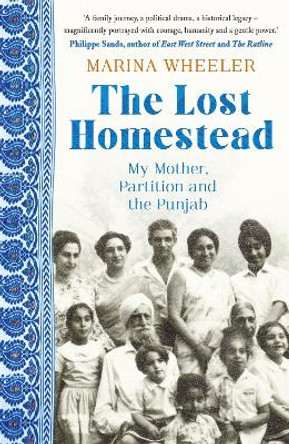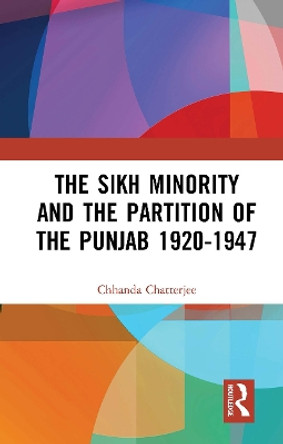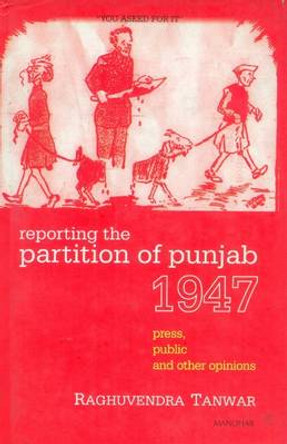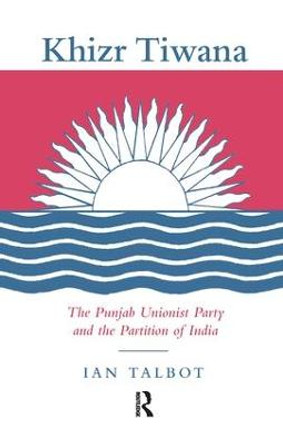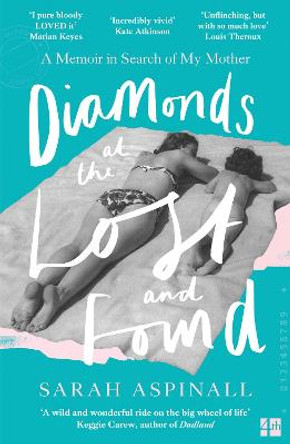Description
'Deeply touching.' - Daily Mail
'A personal, sometimes harrowing history of partition... a writer well worth reading.' - The Times
'A deeply personal story of identity and a highly relatable journey for many in the diaspora... Wheeler taps a rich vein of personal history... Evocative... Gripping.' - Financial Times
'A timely read given the current reassessment of colonialism . . . a charming memoir that weaves the story of India independence and the tragedy of the partition with that of her mother's own escape from an unhappy marriage.' - Christina Lamb, Sunday Times
'A personal, sometimes harrowing history of partition . . . by narrating partition with a focus on her mother's family, the Singhs, she has made the abstractions of history suddenly more real: they are given names, faces and feelings . . . offers valuable insights, especially since Gandhi and Jinnah were also products of London's inns of court . . . [Marina Wheeler is] a writer well worth reading.' - Tanjil Rashid, The Times
'Wheeler has made the abstractions of history suddenly more real; they are given names, faces and feelings.' - The Times
'A family journey, a political drama, a historical legacy - magnificently portrayed with courage, humanity and a gentle power.' - Philippe Sands, author of East West Street and The Ratline
'A wonderful memoir, gripping, elegant, warm and insightful - a triumph. An intimate and inspiring portrayal of how a woman made her own world as nations and empire were made and unmade.' - Dr Shruti Kapila, Lecturer in Modern History, University of Cambridge
'This book is more than a family memoir - it is an insightful glimpse into the way small worlds are forever changed by the impersonal currents of history.' Shashi Tharoor, author of Inglorious Empire: What the British Did to India
***
On 3 June 1947, as British India descended into chaos, its division into two states was announced. For months the violence and civil unrest escalated. With millions of others, Marina Wheeler's mother Dip Singh and her Sikh family were forced to flee their home in the Punjab, never to return.
As an Anglo-Indian with roots in what is now Pakistan, Marina Wheeler weave's her mother's story of loss and new beginnings, personal and political freedom into the broader, still highly contested, history of the region. We follow Dip when she marries Marina's English father and leaves India for good, to Berlin, then a divided city, and to Washington DC where the fight for civil rights embraced the ideals of Mahatma Gandhi.
The Lost Homestead touches on global themes that strongly resonate today: political change, religious extremism, migration, minorities, nationhood, identity and belonging. But above all it is about coming to terms with the past, and about the stories we choose to tell about ourselves.
About the Author
Marina Wheeler is a barrister and was appointed Queen's Counsel in 2016, she specialises in public and human rights law and also teaches mediation and conflict resolution.
She co-authored The Civil Practitioner's Guide to the Human Rights Act and writes regularly for the UK Human Rights blog as well as national newspapers, usually on legal subjects.
Marina lives in east London.
Reviews
'A personal, sometimes harrowing history of partition... a writer well worth reading.' * The Times *
A deeply personal story of identity and a highly relatable journey for many in the diaspora... Wheeler taps a rich vein of personal history... Evocative... Gripping. * Financial Times *
In spare, occasionally lyrical prose, The Lost Homestead meticulously tells the story of her much-loved Sikh-born mother. -- Sonia Purnell * Evening Standard *
Her poignant memoir reminds us that our past shares no borders with our present. -- F.S. Aijazuddin * Dawn *
Book Information
ISBN 9781473677760
Author Marina Wheeler
Format Paperback
Page Count 336
Imprint Hodder Paperback
Publisher Hodder & Stoughton
Weight(grams) 260g
Dimensions(mm) 196mm * 128mm * 26mm


